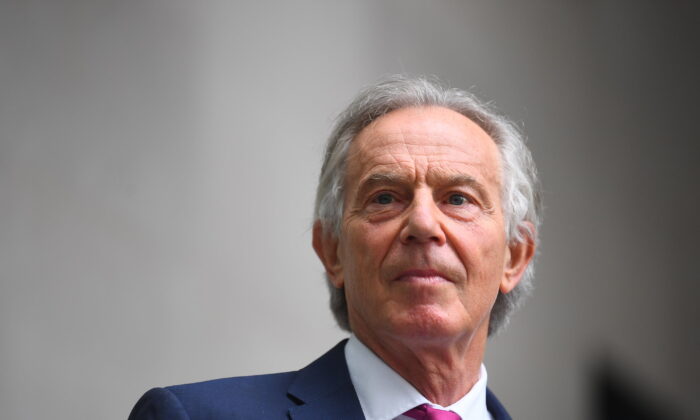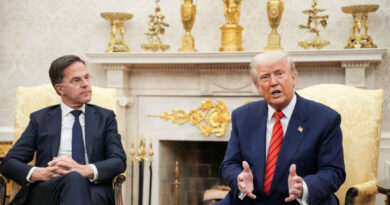Tony Blair Institute Urges Alignment of Carbon Emission Goals with the Economy
A former World Bank economist highlighted that the economic consequences and restrictions of achieving net zero goals have been overlooked.
According to a report by the Tony Blair Institute for Global Change, carbon emission reduction objectives must be harmonized with economic objectives.
Published on Thursday, the Tony Blair Institute for Global Change (TBI) report titled “Reimagining the UK’s Net-Zero Strategy” emphasized the need for the UK to achieve decarbonization without compromising broader social and economic objectives.
The comprehensive report by the former Labour leader and prime minister cautioned that enforcing changes in individuals’ and businesses’ lifestyles unwillingly could lead to public opposition.
Treasury
The report recommended transferring the responsibility for meeting carbon budgets from the Department for Energy Security and Net Zero (DESNZ) to the Treasury for better alignment of carbon emission reduction considerations with economic concerns.
It proposed conducting a thorough review of how the Treasury integrates climate change into economic and fiscal decisions.
The UK has legally committed to achieving net zero by 2050 and has introduced a strategy called “Build Back Greener” to decarbonize all sectors of the economy.
Harry Wilkinson, head of policy at Net Zero Watch, commended the report for recognizing the importance of balancing decarbonization with economic factors.
“The innovative suggestion to move responsibility for carbon budgets to the Treasury has great merit, and would almost certainly reduce the influence of environmentalist civil servants at DESNZ,” he added.
Very Distortionary
Gordon Hughes, a former professor of Economics at Edinburgh and former senior adviser on energy and environmental policy at the World Bank until 2001, highlighted that climate policy lacks any economic context or analysis.
Hughes, a co-author of an early international climate change analysis, criticized the significant expenses needed to implement net zero policies.
He emphasized that achieving zero emissions is very costly and potentially distorts the economy, advocating for informed decision-making by departments responsible for wider policy impacts.
Hughes noted that current net zero policies do not consider economic consequences or constraints in achieving their objectives.
Carbon Taxes
The report suggested that the most effective way to promote clean technologies in the market is through implementing carbon taxes, charging businesses for each tonne of carbon dioxide emitted.
Hughes criticized policies like banning petrol cars, mandating heat pumps, and implementing carbon taxes as inefficient and market-distorting.
He stressed the need for policies that either promote clean technologies or introduce carbon taxes, not a combination of both, to avoid unnecessary market distortions.
Hughes criticized the Department for Net Zero’s approach of regulating all carbon-related activities, warning that it could lead to economic disadvantages and emissions shifting to other countries like China, India, or Vietnam.
The Epoch Times reached out to the Department for Energy Security and Net Zero (DESNZ) and the Climate Change Committee for comments.





